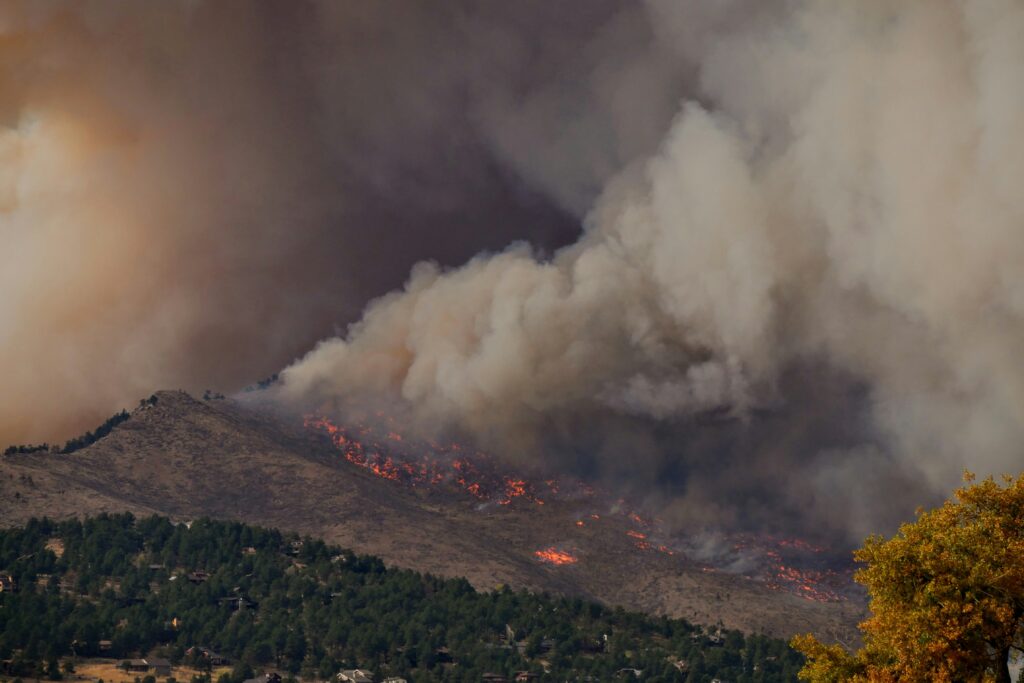Climate change still fuelling mountain forest fires in 2023

Over 500,000 hectares of land burnt in 2023, according to the recent Joint Research Centre report on Forest Fires in Europe, Middle East and North Africa 2023. This is less than in 2022, when 900,000 hectares burned, but similar to the average for 2021 and still just as severe in the extent of the fires. Greece, Italy, Spain and Portugal were among the countries most affected by forest fires in 2023.
Fires in mountain areas
Of the 500,000 hectares burnt in 2023, about 210,000 hectares (41%) belong to Natura 2000 sites. Mountain areas are biodiversity hotspots and are home to a large proportion of these protected areas, around 43% in the European Union. In 2023, Natura 2000 sites in Greece, Spain, Italy but also Portugal, France, Romania and Bulgaria were particularly affected by forest fires. These ecosystems, some irreplaceable, will take years to recover notes the JRC.
The mountains are home to a unique biodiversity in areas that are sometimes untouched, but this specific landscape also brings challenges. In the mountains, forest fires pose specific problems due to the geographical constraints of the terrain. The difficulty of accessing certain areas makes the work of fire-fighters more difficult, and fire-fighting equipment includes more small pick-ups and helicopters capable of accessing steep and remote sites.
Climate change makes fires worse and firefighting more difficult
Around 96% of forest fires in the EU are caused by human actions. This makes education and awareness-raising essential to prevent fire risk. The JRC points out that it is also crucial to improve risk preparedness and our resilience to the climatic hazards that cause forest fires, as our FIRE-RES research and innovation project is for instance contributing to.
Yet, as stressed by the report, fire risks are also being exacerbated by climate change, not only in terms of frequency but also intensity, including in areas that were previously not considered as fire prone.
Many countries experienced high temperatures combined with low rainfall during the summer. In Cyprus, August 2023 was one of the warmest Augusts according to the report. Record temperatures were recorded in mountainous areas. In Prodromos for instance, temperatures reached 38.4°C on the 14th of August 2023, which is considered as the highest daily maximum temperature ever recorded in this station since its first date of operation, back in 1959.
In addition to playing a role in rising temperatures and drought, climate change can also complicate firefighting. In Emilia-Romagna and the Appennine mountains of Italy, very heavy rainfall in May 2023 caused a large number of landslides. The road network, particularly rural and forest roads, was severely damaged. A few weeks later, with the outbreak of forest fires, firefighters had greater difficulty accessing the sites affected by the fires and had to reopen roads to reach the fire fronts.
Given the increasing severity of fires, the considerable impact on both biodiversity and local mountain communities, and the inherent complexity of firefighting within our own territories, authorities at all levels urgently need to provide a strategic and holistic response to climate risks. Euromontana is calling on the European Commission and Wopke Hoekstra new Commissioner for Climate, Net Zero and Clean Growth, to take account of these interwoven challenges in the mountains and to announce more guidance and support to the Member States in its future European Climate Adaptation Plan.